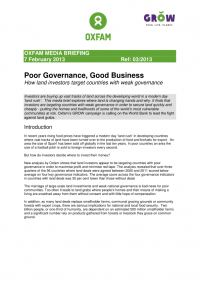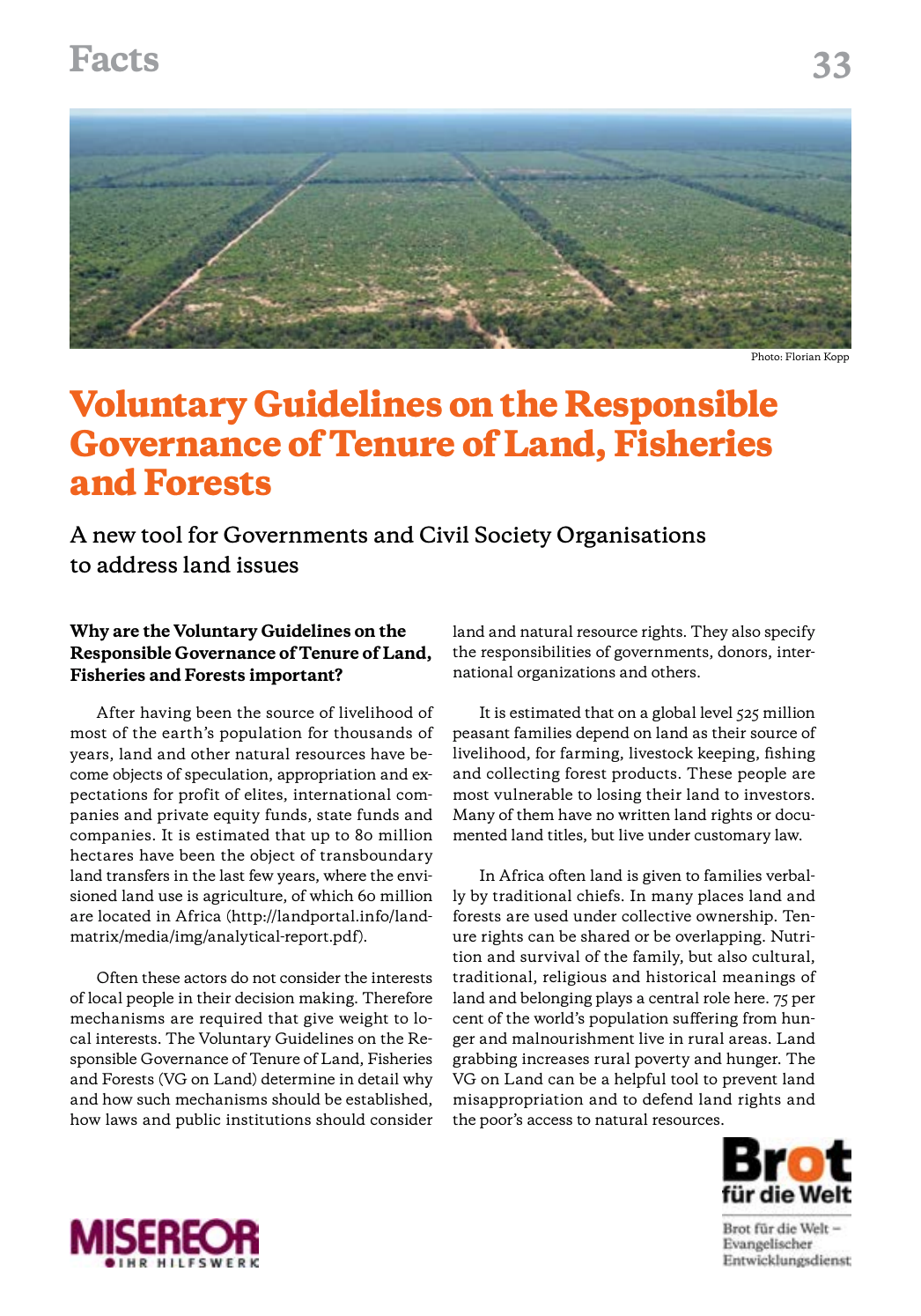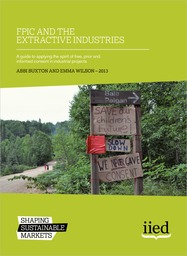Poor Governance, Good Business: How land investors target countries with weak governance
Investors are buying up vast tracks of land across the developing world in a modern day ‘land rush’. New analysis by Oxfam explores where land is changing hands and why. It finds that investors appear to be targeting countries with weak governance in order to secure land quickly and cheaply – putting the homes and livelihoods of some of the world’s most vulnerable communities at risk. Oxfam’s GROW campaign is calling on the World Bank to lead the fight against land grabs.




